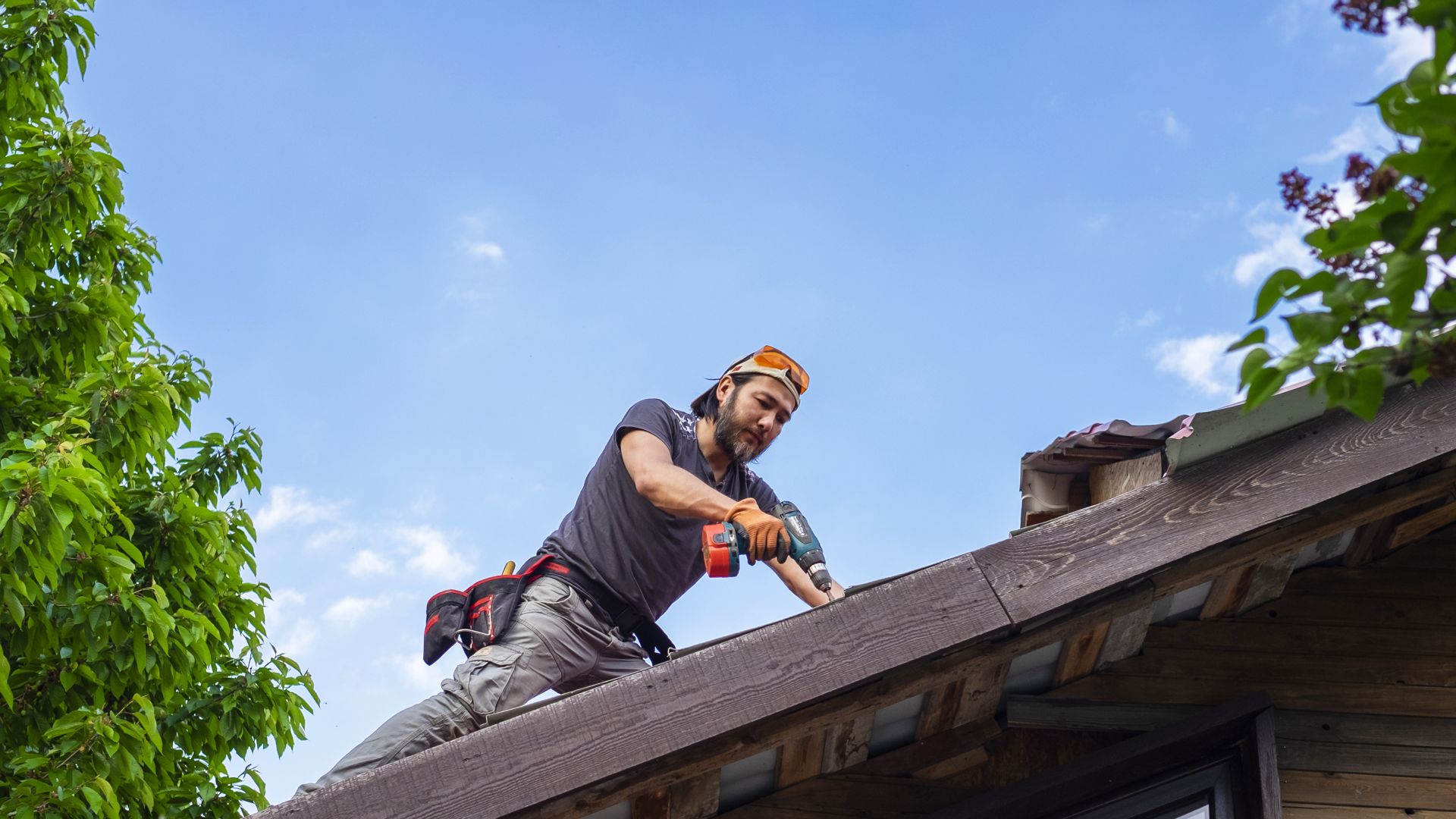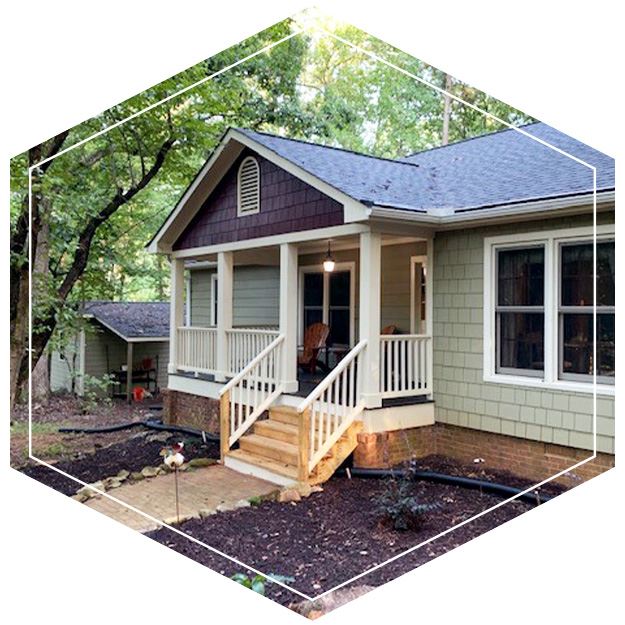Why Do I Need to Have My Roof Inspected?
A roof inspection is an important part of any roofing project, whether it's a simple repair or a full-scale renovation. Knowing what a roof is made of and how it's constructed can help people decide if they need to replace a roof or if repairs are possible.
Roof inspections are important for:
- Deciding if a roof needs to be replaced
- Planning a roofing project
- Making sure the roof is in good condition
- Early detection of leaks and water damage.
- Identification of storm damage from wind, hail, and debris.
- Preservation of your roof's lifespan through preventive maintenance.
- Protection of your home’s interior from costly water intrusion.
- Support for insurance claims with documented professional reports.
A roof inspection provides homeowners and business managers with the information they need to make informed decisions about their roofs. It can help them decide if they need to replace their roofs or if repairs are possible. It can also help them plan their projects by knowing how much material they need and how much work will be involved.
What Are The Signs That Your Roof Needs an Inspection?
Regular roof inspections are crucial for identifying and addressing potential issues before they become major problems.
Here are some common signs that indicate your roof may need an inspection:
- Age of the Roof: The age of your roof is a significant factor. If it's near or past its expected lifespan, it's a good idea to have it inspected.
- Leakage or Water Stains: Any signs of water stains on your ceilings or walls, as well as active leaks, are clear indicators that you should have your roof inspected.
- Missing, Damaged, or Curling Shingles: Missing, cracked, or curling shingles can leave your roof vulnerable to water penetration. Inspect for these issues regularly.
- Granule Loss: If you find excessive granules from asphalt shingles in your gutters, it may indicate shingle wear and potential problems.
- Sagging or Drooping Areas: A sagging or drooping roof can be a sign of structural issues and should be inspected immediately.
- Moss or Algae Growth: Moss or algae on the roof can retain moisture and lead to shingle deterioration. It's a sign your roof may need cleaning or maintenance.
- Flashing Damage: Check for damaged or deteriorated flashing around roof penetrations like chimneys, vents, and skylights.
- Loose or Damaged Roofing Material: Loose or damaged materials such as metal flashing, seals around vents, and rubber boots around pipes can create entry points for water.
- Gutter Issues: Clogged or overflowing gutters can lead to water backing up under the shingles and causing damage to the roof and eaves.
- Daylight Through the Roof: If you can see daylight through your roof from inside the attic, it's a clear sign of a problem.
- Animal Damage: Damage from animals, such as raccoons or birds, can compromise your roof. Check for signs of animal activity.
- Energy Efficiency Changes: If you notice a sudden increase in your heating or cooling bills, it could be due to poor insulation or ventilation in the attic, which a roof inspection may help identify.
- Visible Deterioration: Inspect your roof's condition from the ground. If you notice visible deterioration, wear, or damage, it's time for an inspection.
- Storm Damage: After severe weather events like hail or strong winds, it's a good idea to have your roof inspected for any potential storm damage.
- Previous Repairs: If you've had roof repairs or a new roof installed, periodic inspections are essential to ensure the work was done correctly and that no new issues have arisen.
Regular inspections, ideally at least twice a year, can help catch problems early and extend the life of your roof.
If you notice any of these signs, or if you're unsure about the condition of your roof, it's wise to contact a professional roofing contractor for a thorough inspection and assessment.
Benefits of Timely Roof Inspections
Timely roof inspections offer numerous advantages for your property, ensuring both the safety and longevity of your roof. Here’s how regular inspections benefit you:
- Early Problem Detection: Catch minor issues before they escalate into costly repairs or replacements, saving you money in the long run.
- Insurance Compliance: Regular inspections help with insurance claims and ensure you meet coverage requirements, protecting you in case of damage.
- Better Resale Value: A well-maintained roof boosts your property's value, making it more attractive to potential buyers when it’s time to sell.
- Increased Roof Lifespan: Routine inspections can extend the life of your roof by addressing issues early, ensuring it performs well for years.
Don’t wait for problems to arise—schedule a timely inspection today for peace of mind and to safeguard the longevity of your roof.
The Roof Inspection Process with Cole Roofing & Construction
When you schedule a roof inspection with Cole Roofing & Construction, here’s what you can expect: First, book your inspection by calling us or filling out our online form.
Our certified Durham roofing experts will conduct a thorough assessment of your roof. After the inspection, we provide you with a detailed report outlining our findings. Based on the results, we offer professional advice and recommendations for any necessary repairs or replacements, helping you maintain a safe and secure roof.
Our satisfied customers regularly highlight our thoroughness and professionalism in their reviews, so you can trust that your roof is in good hands.
Protect Your Home with Regular Roof Inspections
Your roof is one of the most important investments you’ll make in your home. Don’t leave its condition to chance. With a professional roof inspection from Cole Roofing & Construction, you can prevent costly problems, improve energy efficiency, and keep your home safe year-round.
For a detailed inspection of every part of your roof, contact our team at (919) 999-3669 today!
Roof Inspections FAQs
How often should I have my roof inspected?
It's recommended to have your roof inspected at least once a year, but you should also have it inspected after any major weather event or if you suspect damage.
What happens if I don't have my roof inspected?
If you don't have your roof inspected regularly, you may miss underlying issues that can lead to bigger and more expensive problems down the line. It's better to catch any issues early on through regular inspections.
Can I inspect my own roof?
While it's possible to inspect your own roof, it's not recommended. Climbing up on your roof can be dangerous and you may not have the expertise to identify all potential issues. It's best to leave it to a professional.
Do I need to be present for the roof inspection?
It's not necessary for you to be present during the inspection, but it can be helpful if you have any specific concerns or questions that you want to address with the inspector.
What if the inspection reveals the need for repairs or replacement?
If the inspection reveals the need for repairs or replacement, our team will provide you with a detailed report and estimate for the work that needs to be done. From there, you can decide how to move forward with the project.












